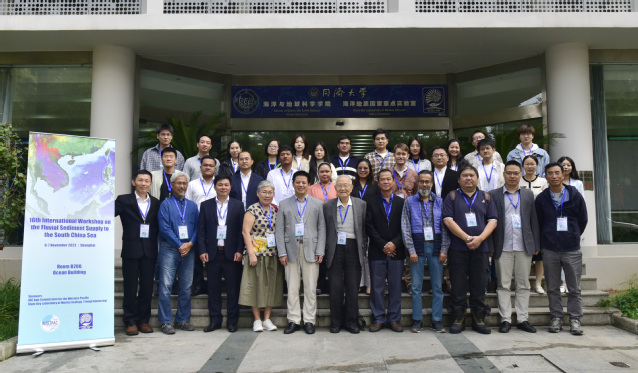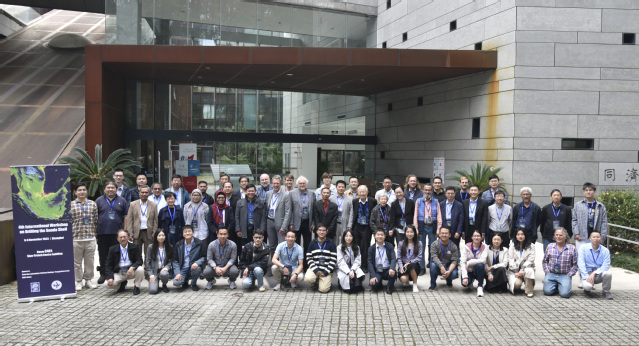From November 6th to 7th, the 16th International Workshop on the Fluvial Sediment Supply to the South China Sea was held at the School of Ocean and Earth Science at Tongji University, with the presence of Academician Wang Pinxian. Over 30 scientists from the Philippines, Vietnam, Malaysia, Indonesia, Thailand, Singapore, Cambodia, Bangladesh, India, Myanmar, Switzerland, and domestic institutions gathered in Tongji to discuss the source-to-sink process of fluvial sediments in the South China Sea and their relation to global climate change.

The South China Sea is the largest marginal sea in the Western Pacific, and is a semi-enclosed basin that receives the largest amount of river sediments in the world. The surrounding areas of the South China Sea exhibit diverse geological structures and are influenced by various rapid climate change events. The huge amount of river sediment input, frequent rapid climate change and increasing human impacts make the South China Sea an ideal area for research on the source-to-sink transport of river sediments and their response to rapid climate change and human activities. For this reason, the IOC Sub-Commission for the Western Pacific (WESTPAC) of UNESCO initiated the project on sediments and environmental changes in the South China Sea from 2008 to 2025, which is led by Tongji University.
The workshop consists of academic presentations and discussions. Scientists attending the workshop come from the University of the Philippines, Petroleum Institute of Vietnam, Jessore University of Science and Technology, Chulalongkorn University, ETH Zurich, National University of Singapore, Royal University of Agriculture, Nanyang Technological University, Prince of Songkhla University, University of Terengganu, Indian Statistical Institute, University of Pondicherry, Southern University of Science and Technology (SUSTech), and Tongji University. They gave 23 fascinating lectures on topics related to geochemical indicators, climate change, and watershed evolution.

In the following 4th International Workshop on Drilling the Sunda Shelf from November 8th to 9th, more than 50 scientists from 14 countries, including Indonesia, Malaysia, Thailand, Vietnam, Singapore, Philippines, Japan, Bangladesh, Germany, UK, France, Switzerland, USA and China, gathered in the Sino-French Center of Tongji University. The motivation of the 4th workshop is to further communicate scientific objectives, research ideas and work plan of the Sunda Shelf IODP drilling proposal (#1007-Full). Led by Tongji University, the proposal aims to test the Pliocene-Pleistocene global climate change hypothesis by drilling the Sunda Shelf in the South China Sea.

The workshop consists of an overview presentation, followed by selected presentations on scientific objectives, site selections, and analytical approaches, and finally by panel discussions. Through this workshop, the scientific objectives and existing issues that the SEP (science evaluation panel) raised are well addressed and a revised version of the Proposal #1007-Full is expected to be submitted very soon. Some initial study plans by utilizing/sharing existing seismic data and sediment cores are expected to be realized to stimulate substantive cooperation among participants in near future, preparing for the first ocean drilling expedition to be implemented by China.

Written by: Pengfei Liu
Edited by: Shouting Tuo


